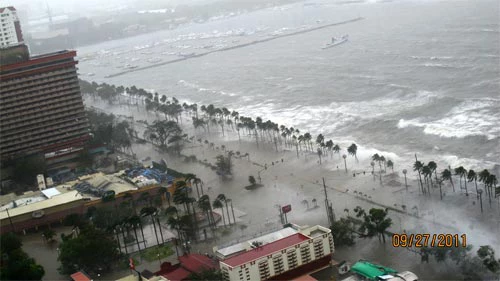
Climate change is definitely upon us. You don’t need to have a scientific mind to realize this, as recent natural calamities have shown in the Philippines, which also swept through some parts of Southeast Asia causing hundreds of casualties and losses to the economy: Typhoons Ondoy (International name: Ketsana) and Pepeng (Parma) in 2009 that flooded Metro Manila; Sendong (Washi) in 2011 which was recognized as the world’s deadliest storm in 2011; and Pablo (Bopha) in 2012. Certainly, this is a little discomforting and makes us a little bit apprehensive about our future. To lessen our anxiety about this phenomenon, it helps to ask questions and get answers. It’s also good to know if something is being done to address the problem – and know that it is being done right.
The Aquino government has been very aggressive in its approach to address the problem of climate change. It staffed the Climate Change Commission (CCC) and made it functional. The CCC coordinates and provides oversight and policy advice on programs and projects on climate change. It is also tasked to craft the National Strategic Framework on Climate Change and the National Climate Change Action Plan (NCCAP). The latter serves as the country’s roadmap to effectively deal with the problem. The CCC also takes a strong stand in international negotiations to reduce greenhouse gas emissions.
To give more teeth to the government’s efforts to adapt to climate change, another law was passed creating the People’s Survival Fund (PSF). With an initial fund of P1 billion pesos (equivalent to US25 million), the special fund will be used for climate change adaptation programs and projects at the local level.
To ensure that the government stays on the right path, through the Climate Change Commission and the Department of Budget and Management, it has requested the World Bank to undertake a study to review government expenditures related to climate change and institutions with mandates to address climate change.
The study called the Climate Public Expenditure and Institutional Review or CPEIR, also provides a general backdrop of projected increases in global temperature and its corresponding effects:
- Globally, since 1950, ocean temperature increased by about 0.09oC
- Sea levels have been rising by 15-20 cm from pre-industrial levels with the rate nearly doubling from that of the past century.
- Industrial activity was non-existent in the Philippines during this period and any GHG emission could only come from agricultural and other normal processes. However, as a small and archipelagic country, the Philippines is highly vulnerable to sea-level rise. The report cited a study (Dasgupta et al. 2009) which listed the cities of San Jose, Manila, Roxas and Cotabato among the top 10 most vulnerable cities in the East Asia and Pacific Region to sea-level rise.
Based on the study, climate change clearly poses a threat to human survival. It foretells of the submergence of coastal communities due to sea-level rise. It also projects the occurrence of frequent and stronger typhoons, and of prolonged, intense heat in the summers and heavy rains and flooding during rainy season. It also tells of the dire consequences of these natural catastrophes to human habitation, food supply, the degradation of ecosystem services and eventual extinction of some species. This clearly shows that climate change is a development issue that threatens the gains and economic development attained in past decades. Agriculture, for instance, which relies on a stable, regular weather pattern will be adversely affected, if such pattern is disrupted by climate change.
While the Philippines is not a major green house gas (GHG) emitter, the report projects that our country’s GHG emission will continue to increase in the years to come. This growth will be due to a growing economy, heightened urbanization, increased demand and use of energy and the expected increase in the number of vehicles, all of which are highly dependent on crude oil for energy.
Given the above, the report recommends several measures along three main lines:
- strengthening planning, execution, and financing framework for climate change
- enhancing leadership and accountability through monitoring, evaluation, and review of climate change policies and activities
- building capacity and managing change
The report, to be launched on June 25, 2013 in Manila, also calls on the government to address several barriers to effective implementation of the climate change agenda.
Meanwhile, a survey commissioned by the World Bank and conducted by the Social Weather Station finds that many Filipinos say they are now experiencing the effects of a changing climate. The survey looked into the level of knowledge of Filipinos about the impacts of climate change as well as their personal experience/s about it. We’ll soon share the results of this survey on www.worldbank.org/ph, but in the meantime, perhaps there are those who are still in the dark about how to adapt to a changing climate, or how the government is working to mitigate its effects.
If you have questions about this topic or would like to share some observations about your environment, please post them in the comments section of this blog. Join the conversation on Twitter by sending your feedback to @worldbankasia and to @CCCommissionPh with hashtag #askCCC and we'll make sure to respond to them. We hope to address all your concerns and will be selecting five of the most pressing questions and answer them in a short video called 5 Questions, 5 Minutes to be posted on www.worldbank.org/ph. Ask now!
Image courtesy of audiovisualjunkie through a Creative Commons license


Join the Conversation